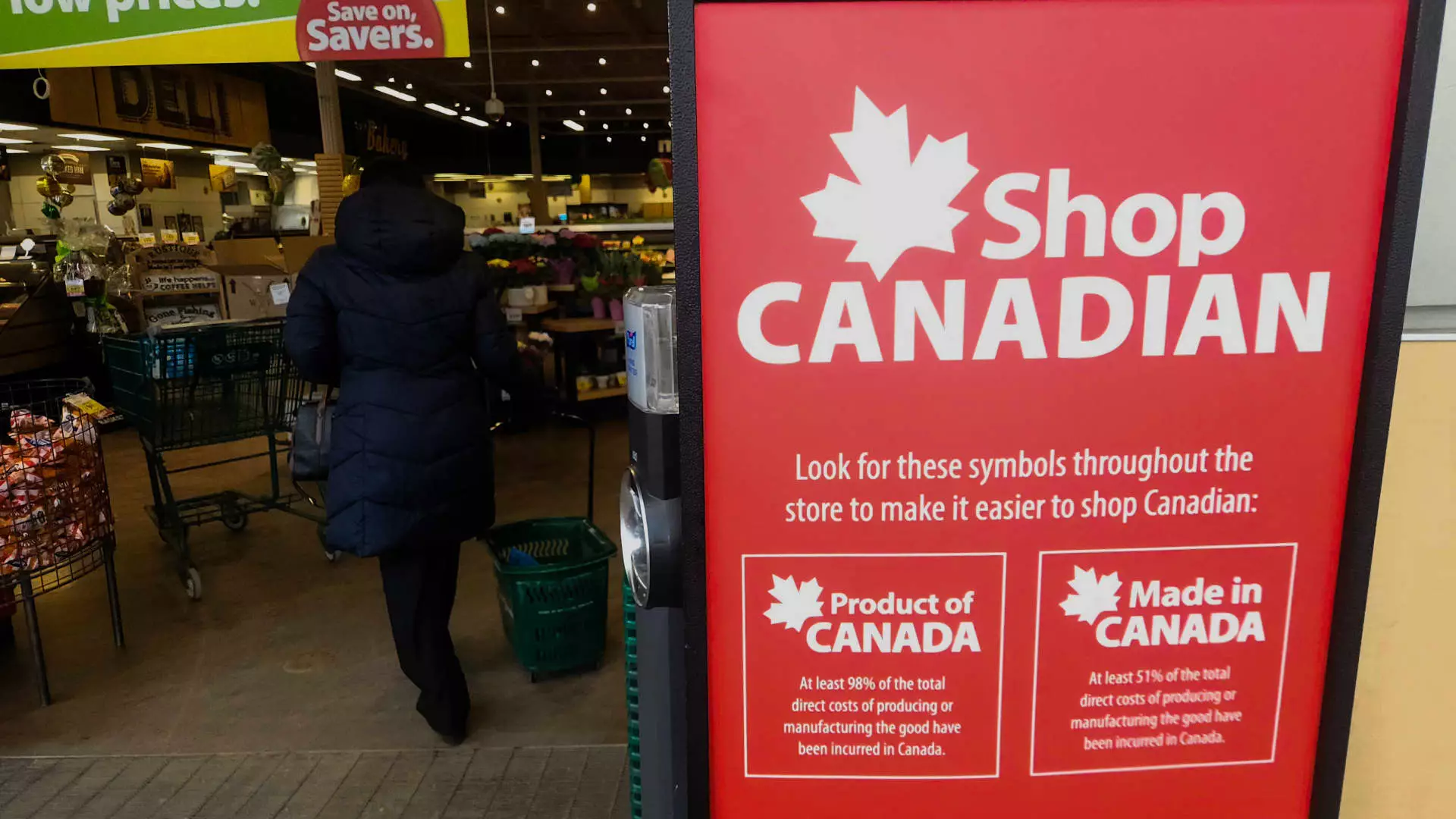In an era where economic interdependence has reshaped international relationships, the ongoing tariff wars initiated by President Donald Trump threaten to unravel decades of cooperative trade between the United States and Canada. By imposing tariffs, Trump aimed to “rebalance” international trade, but for small businesses along the U.S.-Canada border, this has proven to be a betrayal of trust rather than a pathway to prosperity. The staggering $762.1 billion trade between these two nations in 2024 has been undermined by tariffs that neither party anticipated, resulting in a profound sense of disillusionment among Canadian enterprises—who feel disproportionately targeted by these heavy-handed measures.
The trade relationship with Canada has historically been a bedrock for economic viability on both sides. Approximately 75% of Canadian goods are sold in the United States, highlighting an interlinked economic fabric that transcends politics. Nonetheless, Trump’s administration introduced a 10% tariff on Canadian energy and an alarming 25% on various other imports, marking a pivot from historically amicable trade relations to a battleground where small businesses are left to bear the brunt of economic hostilities. What was once seen as a friendly neighborly partnership has turned into an uphill struggle, leaving entrepreneurs questioning their once solid alliances.
Emotion Over Economics: The Real Cost of Tariffs
The financial implications of tariffs are not merely numbers on a ledger; they have profound emotional repercussions. Corinne Pohlmann, a key representative of the Canadian Federation of Independent Business, articulated the disillusionment dawning on her members, with many expressing feelings of betrayal. She noted in a recent survey that over half of Canadian businesses no longer view the U.S. as a reliable trading partner. This grim transformation reveals the invisible but palpable wounds inflicted by tariffs. When trust erodes, it complicates contracts and negotiations, turning business relationships into mere transactional interactions devoid of the camaraderie they once enjoyed.
Canadian businesses, like Balzac’s Coffee Roasters, have creatively responded by renaming menu items to reflect national pride, but behind these acts of solidarity lies a deeper struggle. They symbolize a resistance not simply to tariffs, but to the abandonment felt as a trading partner. The creation of products marked with a symbol of national identity is a coping mechanism employed by businesses to assert their sovereignty in the face of adversity. Here, practical commerce meets emotional resilience—a reflection of how deeply the impact of tariffs has seeped into the collective psyche of small businesses.
The Risk of Long-Term Damage
While retaliatory tariffs might offer temporary relief, they risk long-term damage to the longstanding economic partnership between the U.S. and Canada. The Liquor Control Board of Ontario’s suspension of U.S. product purchases from March 4 serves as a poignant example of how these tariffs foster division. Reciprocal actions like these reflect a nationalistic fervor but carry the risk of spiraling into a full-blown trade standoff that damages both parties. In this turbulent landscape, the once flourishing interaction that characterized U.S.-Canada trade relations now resembles a battleground of retaliatory measures, further fracturing the essential trust that has underpinned these transactions.
Politically, U.S. tariffs are part of a broader exercise of “hard power,” but diminishing trust could have dire consequences for the soft power historically wielded by America. Former Secretary of State Antony Blinken’s cautionary remarks about the erosion of U.S. influence reveal an unsettling truth: economic hostilities can transcend immediate financial losses to affect diplomatic relations. If U.S. influence deteriorates on the geopolitical stage, it could set a dangerous precedent allowing more adversarial nations like China to exploit the gaps left behind.
A Wake-Up Call for Reevaluation
In the tempest of tariff disputes, the loss of established business contracts and erosion of trust presents a clarion call for a reevaluation of priorities. There is a crucial distinction between temporarily levying tariffs and fundamentally changing the dynamics of a longstanding partnership. With over 100,000 small businesses represented by the Canadian Federation of Independent Business, these tariffs pose an existential threat that could change their operational paradigms permanently. Even if a reprieve from tariffs is eventually granted, the wounds generated from months of friction will linger long after the trade wars subside.
In the end, these trade skirmishes reveal a grave misunderstanding of the importance of economic partnerships. Rather than restoring balance, tariffs have sown discord that has left both big and small businesses reeling. The ideal of a robust U.S.-Canada trading partnership now hangs in the balance, caught in a fragile web of mistrust and strained relations, suggesting that the road to mending these ties will demand far more than simply lowering tariffs.

